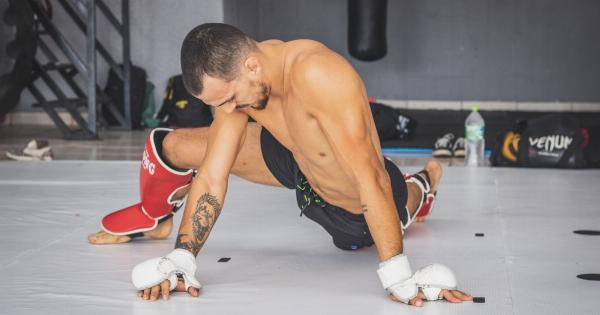Starting a new workout routine can be exciting and challenging at the same time. Whether you are a beginner or an experienced fitness enthusiast, it is important to prepare your body properly before diving into a new workout.
This article will explore the best ways to prepare your body for a new workout, ensuring that you have a safe and effective training session.
1. Warm-up exercises
Before jumping into any intense workout, it is crucial to warm up your body to prevent injuries and enhance performance. Engaging in warm-up exercises increases blood flow, warms up muscles, and improves joint mobility.
Some effective warm-up exercises include:.
- Light cardio activities such as jogging, brisk walking, or cycling.
- Dynamic stretching to loosen up muscles and increase flexibility.
- Joint mobility exercises to improve range of motion.
2. Hydration
Proper hydration is key to optimizing your workout performance. Dehydration can lead to dizziness, fatigue, and muscle cramps, which can negatively impact your training session. Remember to drink water before, during, and after your workout.
It is recommended to consume at least 8-12 ounces of water 30 minutes before exercising and to sip on water throughout the session.
3. Nutrition and fueling your body
Your body needs adequate fuel to perform well during a workout. A balanced pre-workout meal or snack can provide the necessary energy for your training session. Aim to eat a combination of carbohydrates, proteins, and healthy fats.
Some examples of pre-workout meals or snacks include:.
- A banana with nut butter
- Greek yogurt with berries
- Oatmeal topped with nuts
4. Proper rest and sleep
Getting sufficient rest and quality sleep is essential for optimal workout performance. Rest days between workouts allow your body to recover and repair.
It is important to listen to your body and give yourself enough time to rest to avoid overtraining and potential injuries. Aim for 7-9 hours of sleep each night to ensure adequate recovery.
5. Correct form and technique
Prior to starting any new workout, it is crucial to learn and practice proper form and technique. Incorrect form can lead to injuries and hinder your progress.
If you are unsure about how to perform an exercise correctly, consider seeking guidance from a qualified fitness professional or using online resources with reliable instructions and videos.
6. Gradual progression
When starting a new workout routine, it is important to progress gradually to avoid overwhelming your body. Start with lighter weights or lower intensity exercises and gradually increase the challenge over time.
Pushing yourself too hard, too soon can lead to muscle strains, fatigue, and burnout. Listen to your body and progress at a pace that feels comfortable and sustainable.
7. Flexibility and mobility training
Incorporating flexibility and mobility exercises into your workout routine can improve your overall performance and reduce the risk of injuries.
Stretching and mobility exercises help to increase joint range of motion, enhance muscle flexibility, and improve posture. Consider adding activities such as yoga or Pilates to your training regimen.
8. Mental preparation
Preparing your mind is just as important as preparing your body for a new workout. Mental focus and preparedness can positively impact your training session.
Take a few moments before starting your workout to set goals, visualize success, and maintain a positive mindset. This mental preparation can help you stay motivated and push through challenges.
9. Injury prevention
Preventing injuries should be a top priority when preparing for a new workout. Along with proper warm-up and form, there are additional steps you can take to reduce the risk of injuries.
These include wearing appropriate workout gear and shoes, using safety equipment when necessary (such as knee pads or wrist wraps), and incorporating cross-training and strength training exercises to improve overall muscular strength.
10. Listen to your body
Above all, listen to your body. Everyone’s fitness journey is unique, and what works for one person may not work for another. Pay attention to any pain or discomfort during your workout and make necessary modifications.
It’s better to take a break or make adjustments to your routine than to risk injury or overexertion. Trust your instincts and prioritize your well-being.
Conclusion
Properly preparing your body before a new workout is essential for achieving your fitness goals safely and effectively.
From warm-up exercises and hydration to correct form and mental preparation, these steps will help you make the most out of every training session. Remember, consistency and patience are key in your fitness journey, and always consult with a healthcare professional or fitness expert before starting any new exercise program.































